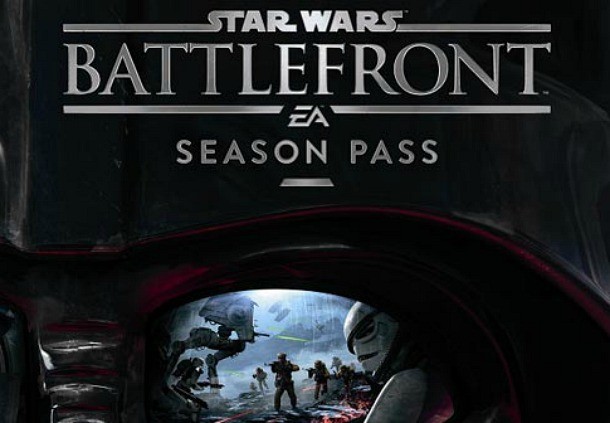Please support Game Informer. Print magazine subscriptions are less than $2 per issue
Season Passes Are Starting To Sound Like Scams

I was raised in a household that worshiped baseball. This meant I spent a good chunk of my weekly allowance on baseball cards. I was a collector. My father was a collector. It was serious business for us, yet even after opening hundreds of packs together, the thrill of seeing which cards we would get never lost its luster. In a way, it was my childhood version of a slot machine, complete with an unhealthy amount of anxiety that either gave way to the happiness of striking it big, or the depression of walking away with nothing.
Although baseball cards exist mostly for old farts like me who don’t want to let their childhood hobby go, the concept of gambling on unknown goods has exploded in the collectibles scene. Companies like Loot Crate and Funko are making a killing on blind-boxed goods – ominous black packages that contain nerdy prayers for cool clothing and toys.
The act of blindly throwing money at a mystery has quietly seeped into video games in the form of the season pass, a selection of post-release downloadable content, often offered at a discount. It may sound like a straightforward business model, but more and more we’re seeing publishers offer the season pass without any revealing information – no listing of what the DLC might be, or when it will be released. We’re blindly putting our faith (and money) into the hands of publishers, and it shouldn't be this way.
Don’t think for a second that publishers and developers don’t have their post-launch DLC plans worked out by the time a season pass is offered. They know what is going to be a part of it, and when they hope to release each piece of it. The whole notion of “We don’t want to spoil the surprises” is garbage logic. You can relay information without spoiling it. Yes, problems can occur mid-development. You may remember Assassin’s Creed Unity launched a buggy mess, requiring the development team to work feverishly to fix the game. The season pass was cancelled as a result, and Ubisoft offered people who purchased it a free game as an apology.
Last year season passes for Batman: Arkham Knight and Star Wars Battlefront were offered with the thinnest of details prior to either game hitting store shelves. Through marketing materials, both companies stressed the importance of securing the season passes early.
Electronic Arts released the following information on the Battlefront website: “Expand your galaxy with the Star Wars Battlefront Season Pass. Get 4 upcoming digital expansion packs filled with new content that will take you to new locations across a galaxy far, far away. Act now to secure two-week early access to each expansion pack and an exclusive ‘Shoot First’ emote. The first expansion pack will be released in early 2016.”
At this point, the player has no idea what they are getting other than four digital expansion packs. Taking a chance on this content nets the player an exclusive two-week time period to play whatever this content could be. Players are essentially being threatened to buy it now, or not be able to play it first with the rest of the community. This is beyond unacceptable, especially when the season pass costs $50.
At a later date, Electronic Arts offered a little bit more clarity behind Battlefront’s pass, but again refrained from offering a release roadmap. We learned that the four digital expansion packs combined would consist of 16 maps, 4 heroes, and more Star Cards. It wasn’t until last week (and roughly four months since the season pass was offered) that we’re learned when this content would be coming. The first pack hits in March. The final pack won’t be released until early 2017. Would you have purchased the season pass knowing you wouldn't get all of it until 2017? I doubt it, and I bet EA weighed that question heavily when figuring out their communications.
Warner Bros. Interactive’s listing for Arkham Knight read like a summary of the game itself, but offereed no real information as to what would be inside it. We just knew we were getting a little of everything. The release read: “This season pass for Batman: Arkham Knight delivers new content every month for 6 months, featuring new story missions, more supervillains invading Gotham City, new legendary Batmobiles, advanced challenge maps, alternative character skins, and new drivable race tracks.”
When more details were revealed closer to the DLC hitting, we learned that Arkham Knight’s first significant story DLC, A Matter of Family, was not developed by Rocksteady Studios, and was instead created by WB Montreal, the team behind Arkham Origins. This is like learning you’re getting a new Stephen King short story as a bonus to a new book purchase, but learn later that it was written by another author using King’s outline. We should have known WB Montreal was involved in the DLC when we threw down the cash for the season pass.
Long story short, we need more information from publishers. Asking for money up front without a clear roadmap is making season passes look like Loot Crates. We need to know what we’re buying, especially as season pass prices continue to soar. I’m not saying we need every detail laid out before us on day one, but give us the basics, as well as estimated release timeframes. Yes, plans change, and problems occur mid-development, but we also live in a day and age that allows that information to be communicated immediately.
The first season pass that I can remember clearly was for Rockstar Games’ L.A. Noire. Although many people (myself included) reacted negatively at the notion of pre-buying DLC, Rockstar successfully detailed its plans for L.A. Noire’s extended content with descriptions and release dates for each piece. Yes, Rockstar put an incentive on buying it quickly – a two-dollar deduction for early birds – but there was no guesswork on the consumer’s part. We knew exactly what we were getting into. That’s an example of how season passes can (and should) work.
Given how these passes are issued now (especially the examples I listed), they sound like scams coming from money-hungry corporations. The point of DLC is to entice the player base to hold onto their game and revisit it. I get that. I like the proposition of getting more value out of my game, even if I have to pay for it in some way. But I want to feel confident in my purchases, and not be left wondering if I’m being taken advantage of.










